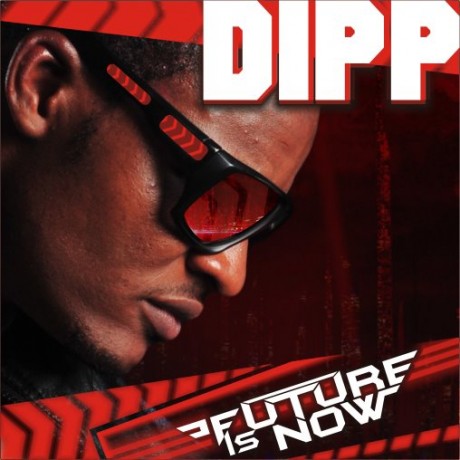DIPP: Dancing and other Handicaps
by thepingofpong
Some key memos have not gotten to DIPP. Chief among them is that telling of the death of American R&B in the Nigerian music scene. Perhaps it did get to him but he hoped he might be able to produce music that would surpass the status quo.
It is conceivable that the man has simply done what he can. Dipp, who is in his 20’s and evidently raised on the R&B of the late 90’s and early noughties promoted by the trio of Sisqo, Ginuwine and Usher, the latter with whom he shares some physical semblance, caught the dance R&B early. Throw in P-Square’s pre-Highlife phase and perhaps, Dipp’s fate was sealed way before his debut. This of course isn’t a terrible thing, young artists are generally flattered to attract such comparisons. The challenge is coming out of such shadow.
Here is where Dipp has a problem. His style, almost in its entirety, is derivative. Usher is lurking under (and sometimes over) every hook, every bridge, every vocal turn. The themes are similar to what the American covered in 2001’s 8701. In a world where artistes try to carve a niche for themselves, Dipp appears content trudging a path already worn by the middle of the last decade so that the album title, The Future is Now, is loaded with irony. However, the first song on the album, Fly Away, tries to plant it firmly in 2011 with its techno beat but the singing drags it back to the past.
Often it happens that despite these external drawbacks, an album can be listenable and such is the case here, the beats are very groovy, and may have rivalled the P-Square’s effort had it been released same period as Get Squared. Of itself, the album weaknesses are mostly those that come with the baggage of its influences: lyrics that could have been better written (on Kosorombe he utters an irredeemably crass line, “that’s my agenda/on top my verandah/ is where I’d be feeling you”, on the next song a lady becomes his “snow in Africa”); less than competent vocals and a need to conform- to P-Square, perhaps?- by including a wedding song (unashamedly called I Do).
The album highlights are essentially the duets especially the ones with a female singer. Waje and Yemi Alade supply verses to Jezebel and Rock ur Body in songs that are easily the most well executed songs on the collection. There is also the bad-girl apologia, Good Girls- a theme explored by Naeto C in E No Mean Say. (YQ delivers a killer hook and unsurprisingly, the song has two remixes included as bonus).
The other songs need a strong visual component to be fully enjoyed; these are songs that make the listener want to see the artist perform them in hopes of catching a scintillating dance move. While, this may work to Dipp’s advantage for live shows, it is a drawback for an audio disc considering nothing short of a video for every song will do which is impossible in this climate. Most of the songs would be legitimate club bangers in a different time but not anymore. It’s a huge loss for him.
More than once he chants a line from Nas’ Nas Is Like: “Half man, half amazing”. Well, no one can begrudge him the claim. But his album The Future Is Now is less than amazing; it is half dated, half derived.
Maybe next time the album would catch up to the man?


Ahem.
LikeLike
Wow!! Ok, the album’s good but it’s not right for this clime. I think Dipp has tried to carve a ‘niche’ for himself someway in a clime that is filled with syrupy lyrics and half-baked artistes who due to the economic clime think themselves talented.
Let it be noted that presently in Nigeria, dere is no original artiste or an original idea but I must say Dipp can and will hold his own. Like you noted, he allowed his influences to overshadow his craft but we hope on his next album, his craft will come through. Dipp tho’ is a breath of fresh air.
LikeLike